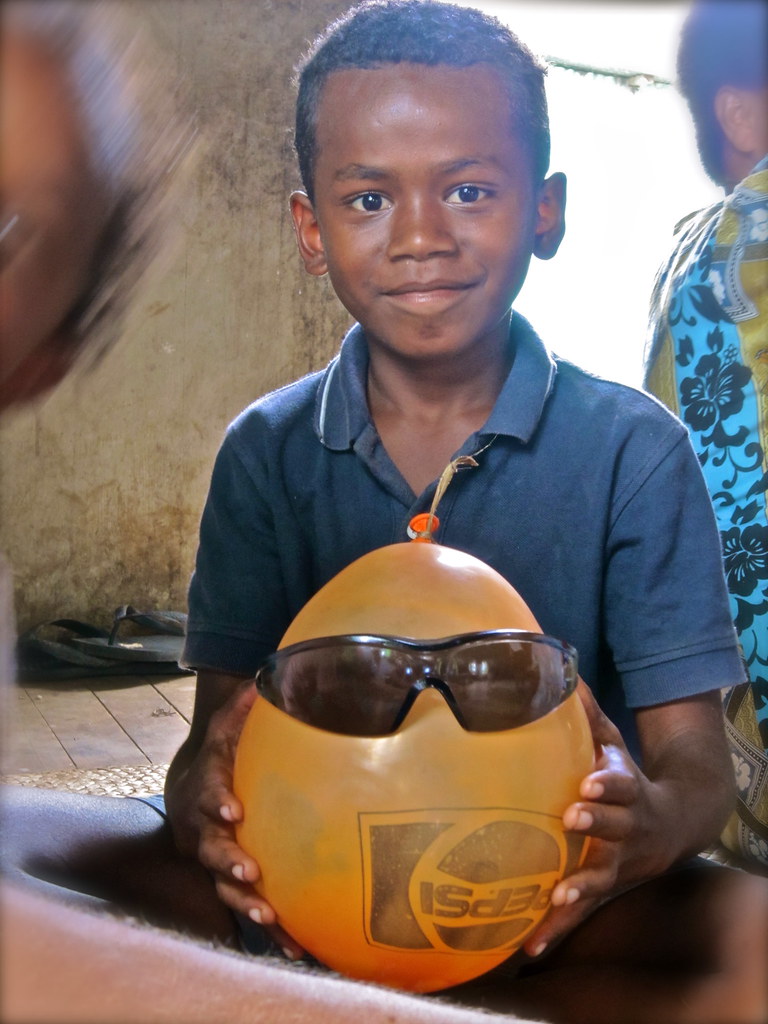I got on a bright yellow bus with "Awesome" scrolled along the side of its body. I lined up behind rolling suitcases, backpacks and wide-brimmed hats to book a ticket to the islands. I arrived to five resort employees singing a Fijian welcoming song, somewhat half-heartedly. A tourist I became after months of being on an island that rings bells of hedonists across the globe.
It was exactly what I wanted at the time, but there was no onslaught of relief. I walked to my dorm bed the same way someone with an upset stomach walks away from the toilet, but instead of asking, "What did I eat?", I asked myself, "Why didn't that work like I had planned?"

The "Uh Oh" Research
Within hours, I was asleep under a palm tree, swinging gently and feeling the hammock's grid tattoo my back, and luckily at dinner, I met some people I could begin talking to about the project. One girl offered her Lonely Planet Fiji book for me to peruse, because surprisingly I didn't read up on the history or culture of Fiji prior to either trip. I thought I knew it from the ground level and didn't want to read a description that would lead my assumptions astray.
Here were some of the more interesting notes from those first 50 pages:
- 2/3 of Fijian men believe domestic violence is acceptable, and random violence against women is common. (Scary)
- The village mentality expects people to not be too ambitious. (Sad)
- The village mentality doesn't encourage individual thinking; they actually see individual thinkers as a threat. (Disturbing)
As I scanned these sentences, I began to feel an intense worry build: were we cultural imperialists? Did we expect the Fijians to like what we had to say and adopt our ideas and methods, just because we felt they were right. And that was one of the biggest problems: we thought we were "right."
...Right.
Cultural imperialism...
...involves the dissemination of ostensibly American principles, such as freedom and democracy.

Did we bribe? I guess. At first we gave the children balloons at the end of the week for coming to class and actively participating. Did we attract? Absolutely...having a yard sale selling well-made items for an incredibly low cost enticed loads of mothers to participate in our fundraising efforts for their dispensary - a fundraiser we led in a democratic fashion, not so much a Fijian-friendly manner.
And did we pressure or force people to listen to our concepts? Force and pressure we did not. Had we attended their kava sessions in order to conduct our adult classes with a crowd, that would have been the case, but we believed those who were truly interested would attend our sessions on their own...hence our average of three class attendees.
Tolerating the "Right"
One of the biggest factors in this sensitive equation that makes me feel better is the fact that our intentions were solely and powerfully good. Though this isn't a "get out of shame free" card, it certainly validates much more when dealing with these culturally sensitive areas. Upon first stepping foot in Fiji, we taped ourselves expressing the concerns we had for our own project, stating, "We're not even sure they want us to do what we came to do."
After explaining our purpose and receiving acceptance, we felt we were in the clear. But it would have been in our best interests to examine the culture we were penetrating before getting there and constantly ask questions to the head people in order to perfect our footing. There was a whole anthropological lesson to be learned in preparation, although this is assuming perfect preparation would have given us perfect results.

Truth of the matter is that even approaching this situation with lofty goals, determination and timid expectations, no one can predict the outcome, the turns of events, and the true perspective from the local community on a new project. It's fairly common for people to tolerate virtually anything if it benefits them, and this became even clearer to me as I heard those employees sing there on the beach.
I realized this village, owning and running the resort, must put up with a lot, being a conservative community: seeing women in revealing bathing suits, tempting their members with access to alcohol (though not allowed to imbibe), listening to customers bash the taste of kava, and witnessing various insulting gestures in Fijian culture (that most foreigners are unaware of). Maybe Nakavika simply tolerated our messages, unconvinced they should take them to heart. Who are we to tell them what's "right."
Reevaluating Belief in Knowledge
Where is my mind now? I'm trying to figure out why I believe in what I know. Medicine evolves continuously, so why do I put my word on today's nutritional values? Why am I set on helping others think independently when it's arguably optimal for people to support their communities before themselves?
Regardless of where my mind lands in this mental game of Spin the Bottle, the project will progress organically from now on, starting with the outreach by the village for our offers. They know what we're capable of and what we hope to achieve. They are the ones who dictate the future of the project - the ones who will identify if we really were imperialists or humanitarians.
Give me your thoughts on this topic, and check out the comments as well for Rights vs. Blame as many pertain to this issue of cultural imperialism.
